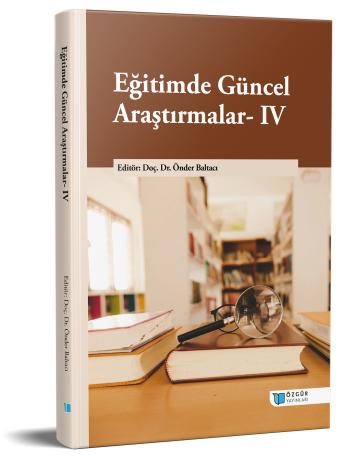
An Investigation of the Effects of A science Camp on High School Students 21st century Skills, Mathematical Connection Self-Efficacy and Perceptions Towards STEM
Chapter from the book:
Baltacı,
Ö.
(ed.)
2023.
Current Research in Education- IV.
Synopsis
The aim of this study is to examine the effect of the science camp held within the scope of TÜBİTAK 4004 Nature Education and Science Schools on high school students' 21st Century competence perceptions, mathematical connection self-efficacy, and STEM perceptions. The implementation process of the project was carried out by expert trainers in the field with a total of 24 activities in an 8-day period. 18 instructors took part in the project. The activities carried out aimed to raise awareness about scientific knowledge by attracting students' attention to priority areas such as nanotechnology, robotics, coding, 3D design and renewable energy resources, to increase students' interest in basic sciences oncepts, develop their scientific process skills, relate different disciplines to daily life, develop their sense of curiosity towards learning, and enable them to become conscious and sensitive individuals about nature. In this context, the research was designed with a weak experimental design without a control group. 32 students participated in the project. While 21 of the students are female students, 11 of them are male students. While 18 of the students are studying in the ninth grade, 14 of them are studying in the tenth grade. In this research, the data collection tool "21st Century Skills Competence Perception Scale", "Mathematical Association Self-Efficacy Scale", "STEM Perception Scale", word association test (science, technology, mathematics and science) were used. Research data were collected as pretest and posttest. As a result of the research, a statistically significant difference was detected in students' perceptions of STEM. Significant differences were also detected in sub-dimensions other than mathematics. In 21st-century skills competence perception and mathematical connecitons self-efficacy, there were no statistically significant differences observed between pretest and post-test scores. It was observed that the students' scores in the subscales of both scales were similar before and after the experiment. According to the results of the word association test, students made associations related to the scientific process after the experiment. While the number of students associating mathematics with the four operations decreased, the number of students making connections with daily life increased.

